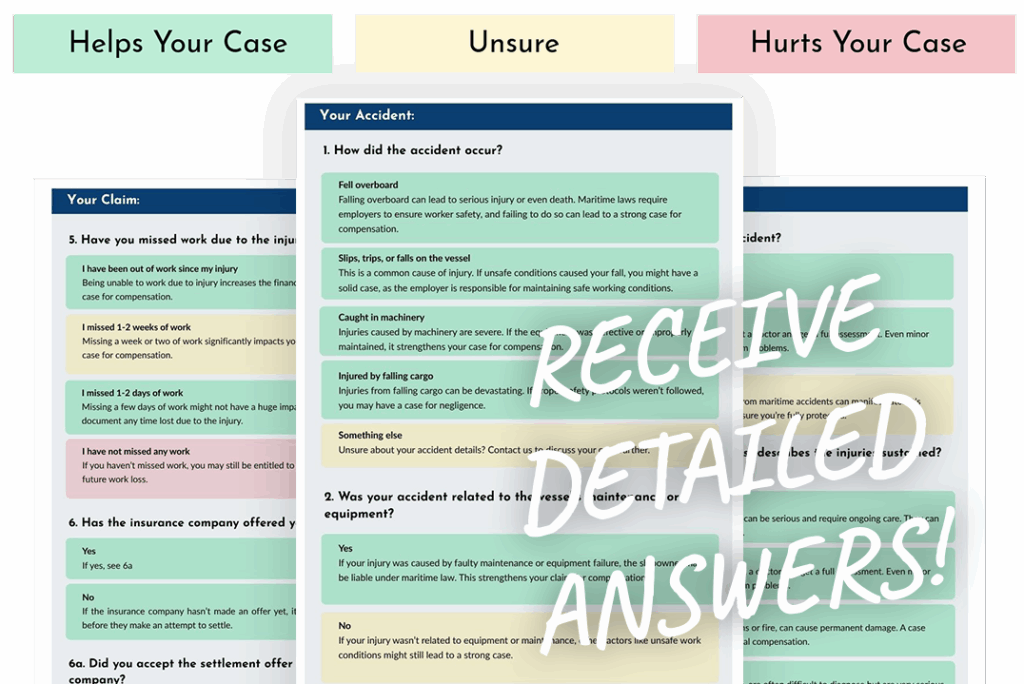Maritime Accident FAQs
Over $1 Billion Recovered for Maritime Accident Victims. We are proud to have a reputation for aggressively fighting for the rights of injured workers.
Frequently Asked Questions About New Orleans Maritime Injury Claims
After a serious maritime accident, it’s natural to have a lot of questions and feel uncertain about what to do next. The laws protecting maritime workers are complicated and different from regular onshore injury claims. To help provide some clarity, our experienced New Orleans maritime lawyers have answered some of the most common questions we hear from injured workers and their families.
Disclaimer: Every case and property is unique. The general answers provided here are for informational purposes only and may not apply directly to your situation. This information should not be considered legal advice. Please consult with an attorney for advice regarding your particular case.
Questions About Your Rights & Case
Questions About the Jones Act & Seaman Status
Questions About Other Maritime Laws
General Questions
What Our Clients’ Say About Us
NATIONALLY RECOGNIZED ATTORNEYS
CONTACT US
Our experienced attorneys are here to guide you through every step of the process, from initial consultation to settlement or trial.
Free Case Review
Fill out the form below to contact Lambert Zainey and schedule a free, confidential consultation and discuss your case with an experienced attorney.








